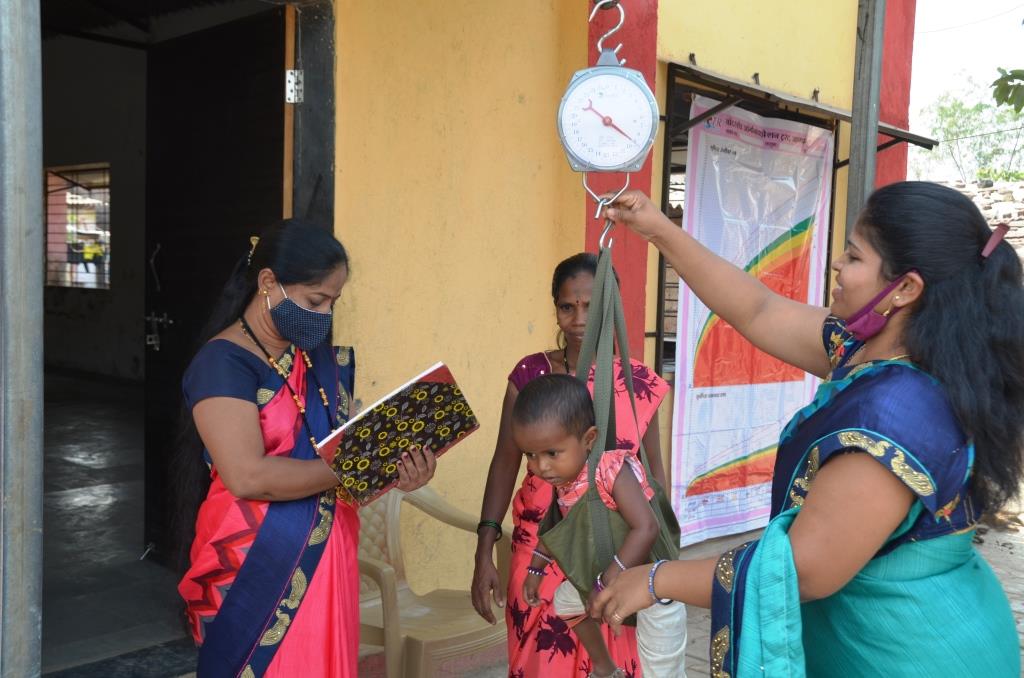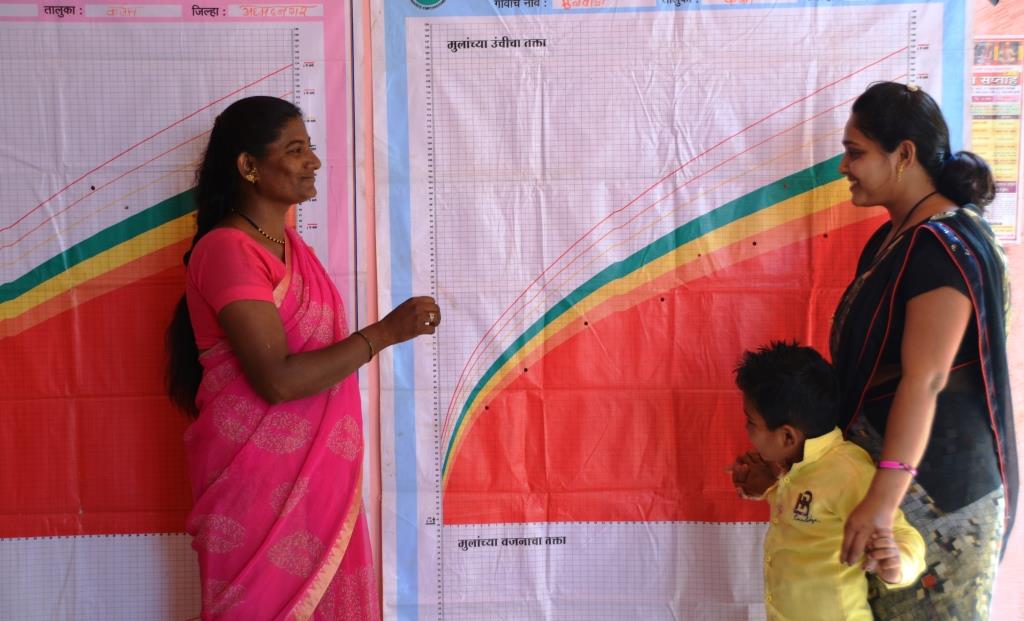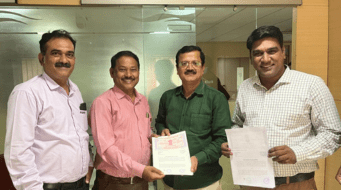India, with a population of 1.4 billion, has long been concerned with ensuring food security. Despite recent economic growth, the country continues to face challenges in eradicating hunger.
Maharashtra, one of India’s largest states in terms of area and population, is currently facing a severe food crisis. The Hunger Watch Survey II found that approximately 78% of households in the state are experiencing food insecurity, which is particularly alarming given that Maharashtra is a major contributor to India’s agricultural economy.
Despite government efforts to achieve food security and improve nutrition, such as the POSHAN Abhiyaan scheme, the situation remains dire. The NITI Aayog’s report shows that the scheme has failed to utilize even half of its allocated funds, and an analysis of two consecutive National Family Health Surveys by Harvard School of Public Health revealed that the state has dropped from 20th place to 25th place in the past five years.
What is POSHAN Abhiyaan?
POSHAN Abhiyaan, previously known as the National Nutrition Mission, is a program launched in 2018 by the Indian government with the goal of addressing the nationwide problem of malnutrition. The initiative aims to improve the nutritional status of children aged 0-6 years, adolescent girls, pregnant women, and lactating mothers. POSHAN Abhiyaan is an overarching scheme for Holistic Nutrition.

The primary focus of POSHAN Abhiyaan is to address the issues of low birth weight, stunting, and under-nutrition in children aged 0-6 years, as well as the high prevalence of anemia in young children aged 6-59 months, women, and girls aged 15-49 years.
Initially, the program was intended to run for three years until March 2021 and aimed to address key aspects of malnutrition in the country. However, after assessing the impact and potential of the program, the government has decided to integrate various programs with similar objectives such as the Supplementary Nutrition Program and POSHAN Abhiyaan under one umbrella, known as Mission POSHAN 2.0. This will allow for a more integrated approach to nutrition services and create synergies in operations.
Maharashtra: the current status
Maharashtra has the highest rate of malnutrition among Indian states, with over 33 lakh children suffering from malnourishment, 18% of which are in the state. Additionally, over 4.5 lakh children in Maharashtra fall into the category of Severe Acute Malnutrition. The situation has worsened further during the COVID-19 pandemic. Despite being among the top three large states in terms of overall implementation of POSHAN Abhiyaan, the state’s declining food and nutrition security status calls for urgent action.
Understanding Food Security
Food security encompasses more than just providing two meals per day. It includes three key elements: availability, accessibility, and affordability.
- Availability refers to food production and stock availability, ensuring that there is enough food to meet the needs of the population.
- Accessibility ensures that food reaches every person in the country without discrimination.
- Affordability ensures that every person has the resources to purchase sufficient, safe, and nutritious food to meet their dietary needs
Need for strategic intervention
POSHAN Abhiyaan fell short of its goals and one of the main reasons for this is the underutilization of funds in many cases. The COVID-19 pandemic further exacerbated the challenges, making the situation worse. Data shows that Maharashtra utilized around 71% of the total funds allocated under the scheme, which is better than many other states. However, it’s important to note that nutritional security also depends on several other factors, not just fund utilization.
A report by NITI Aayog titled “Preserving Progress on Nutrition in India: Poshan Abhiyaan in Pandemic Times” suggests expanding coverage and improving the quality of essential health and nutrition interventions by continuing to strengthen the ICDS and health platforms. The report also highlights gaps in human resources under POSHAN Abhiyaan and calls for accelerated efforts towards human resources and supply chain management.
Maharashtra must take concrete steps and proactive measures to address the longstanding issues and improve nutrition among its citizens, especially children and women. Collaborative efforts from the government, agencies, civil society organizations, and individuals are needed to design structured, time-bound, and location-specific strategies that are suited to the socio-economic fabric of specific communities.

Effective selection and allocation of personnel, clearly defined roles and responsibilities, timely communication, and a robust monitoring and review mechanism are all critical components for the success of initiatives like POSHAN Abhiyaan. Addressing under-nutrition can be achieved through a combination of direct nutritional interventions and indirect multi-sectoral approaches. Direct interventions such as promoting breastfeeding, proper complementary feeding, and handwashing practices can supplement the long-term, sustainable multi-sectoral approach
WOTR: Tackling Malnutrition Holistically
Food insecurity and nutritional poverty are symptoms of deeper socio-economic problems. Unfortunately, many efforts to address these issues have been ad-hoc or fragmented. To address this, WOTR is working with a holistic approach to strengthen the nutritional status of rural communities in Maharashtra.
WOTR works closely with communities to spread awareness, build capacity, and enhance accessibility to resources and government schemes. In addition to working on child nutrition (0-6 yrs), the organization also places emphasis on conducting parenting counseling sessions, food demonstrations, kitchen gardening, and anemia eradication. WOTR’s focus is on overall well-being of the people and not just specific areas. The role of Mahila Pravartak is crucial in this regard.
The Mahila Pravartak is the village-level representative, who is essential in implementing health and nutrition-related activities and events in her village. Locals relate better to Mahila Pravartaks as they belong to the same community and understand the real challenges on the ground. Women from local self-help groups are also actively involved in this process.

WOTR is focused on enhancing the health and wellness of communities, and as such, has invested in areas beyond food and nutrition, including strengthening drinking water facilities, promoting good sanitation, and organizing health camps. The organization collaborates with experts and like-minded organizations to achieve a strong impact, making the model scalable and sustainable. To date, WOTR’s health initiatives have benefited over 1.39 lakh rural people across 472 villages
Good Nutrition: the foundation to a progressive nation
As the world focuses on sustainable development, proper nutrition plays a crucial role in building a progressive society. SDG 2 aims to eliminate hunger, achieve food security, and improve nutrition. Despite 75 years of independence, food security remains a pressing issue in India. While the government has periodically launched initiatives to address the problem, there has been a significant lag in achieving desired outcomes. To overcome this, it is crucial to focus on developing mechanisms to ensure seamless implementation of policies and programs at the local level. This can be achieved by prioritizing collaborative efforts and a shared vision among all stakeholders.





